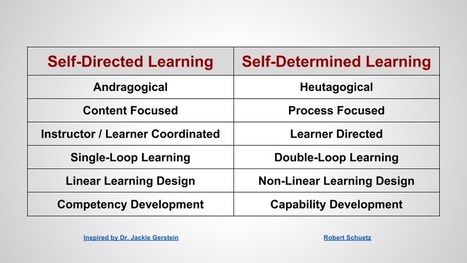"Many instructors that teach face-to-face use the traditional method of teaching; lecture, discussion, lab, and practice. They move the course to the online environment using the same methodology. Adult instructors do not always have formal training in developing course material and do not always understand the pedagogy of the adult learner. To use the online tools effectively, instructors must be familiar with the technology available to them as well as how to use it. This paper describes effective andragogical methods for adult instruction. It will also present the available tools and the method and reason for using them. By reviewing the research of current methods of instruction, a road map to course design will be recommended. There are effective techniques to presenting face-to-face material in the online environment that will allow the adult student to achieve a higher level of satisfaction of learning and cognitive understanding of the course material."



 Your new post is loading...
Your new post is loading...















